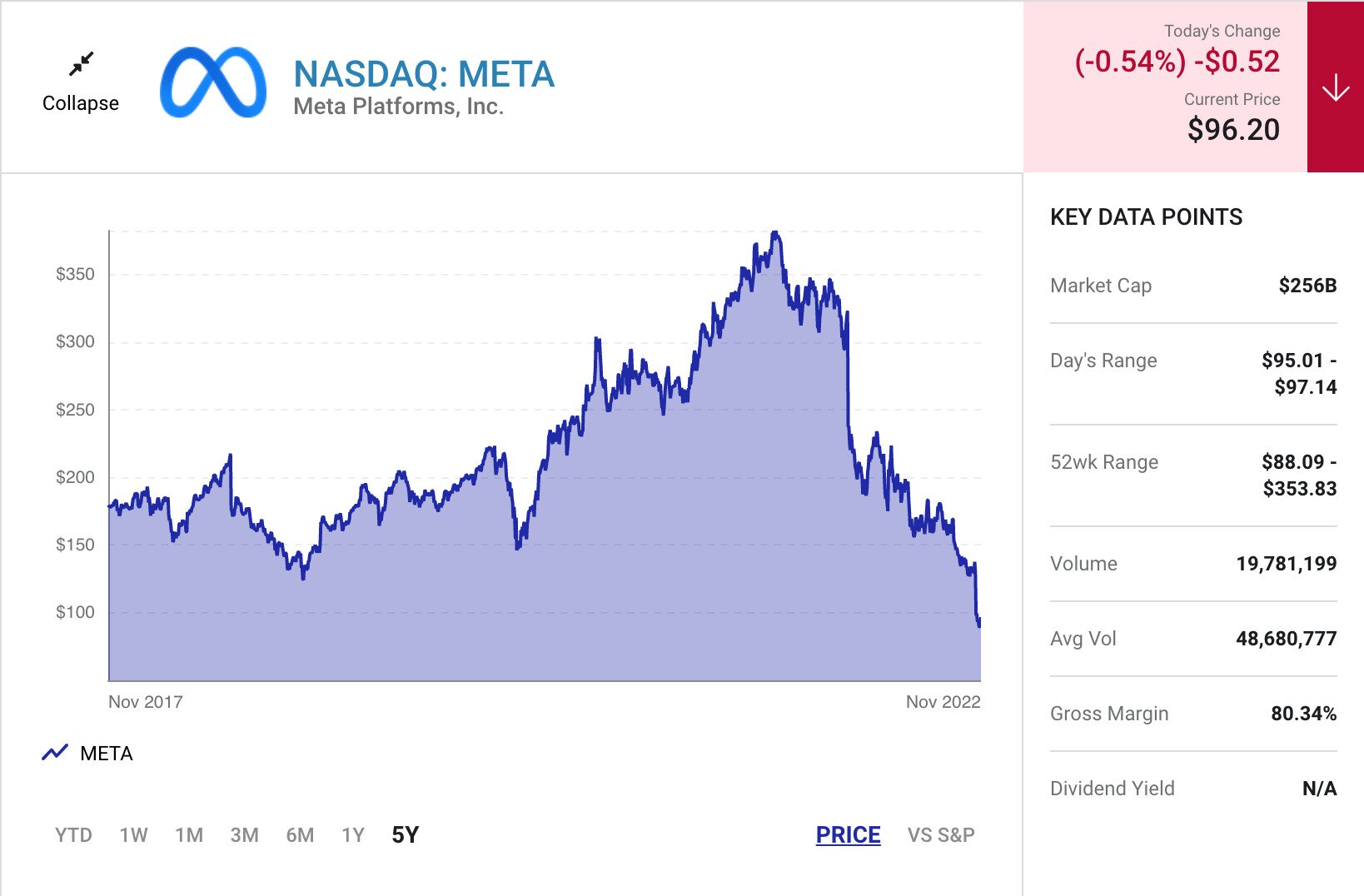- >News
- >Are VR Headsets Suffocating Meta’s Web3 Dreams?
Are VR Headsets Suffocating Meta’s Web3 Dreams?
Meta is scrambling to remain competitive in an environment where newer social media apps like Tiktok are eating into its revenue and user base. The company witnessed a fall in its Daily Active Users (DAU) this year for the first time in its 18-year existence, with CEO Mark Zuckerberg attributing the phenomenon to the increasing popularity of TikTok across the younger demographic.
Last year, the company relaunched as Meta at the Connect conference, where Zuckerberg announced: “From now on, we’re going to be the metaverse first. Not Facebook first.” The pivot signaled the company’s ambitions beyond just social media and the goal to dominate the virtual and augmented reality market.
In October, Meta debuted the new virtual reality (VR) headset Meta Quest Pro, which retails at $1,500. At that price, the Quest Pro is nearly four times the value of Meta’s existing VR headset, the Quest 2, which goes for $399.
Meta's Stock Price
While Meta’s new direction is forward-looking, it begs the question of whether the timing is right; in the middle of a global economic slump in which people’s priorities do not include a VR headset. Some commentators have described Zuckerberg’s newest obsession as a solution looking for problems instead of the other way around.
Meta’s stock price sank by more than 61% this year, with observers attributing the decline to the competition, the dim economic outlook, and investors’ lack of confidence in the profitability prospects of the metaverse.
Meta’s share price on 7th November, 2022
Zuckerberg’s experiment with the metaverse reminds everyone of his company’s infamous Libra cryptocurrency that never saw the light of day due to regulatory pressure. When it comes to technological trends, you can trust the internet entrepreneur not to be left behind. Will the metaverse meet a similar fate as Libra?
Below, we’ll compare how other big investments have fared overtime.
Betting on NFTs
Here’s the thing: when it comes to the performance of such investments, it can go either way. One example is NFTs, which were the rage from 2020 to 2021, only to undergo a dramatic bust in 2022. No case illustrates this better than Jack Dorsey’s first-ever tweet on Twitter that he sold for $2.9 million but currently has a best offer of $77,232 on OpenSea.
The original buyer of the tweet, Iranian crypto entrepreneur Sina Estavi, hoped to resell the tweet at $48 million this year, but was left “holding the bag.”
While NFTs were picking up in 2020, they only quite exploded in March 2021, around the time Dorsey listed the tweet on the NFT marketplace called Cent. It was perfect timing for Dorsey, but the same can’t be said for Estavi, who bought into the hype and even gushed how the tweet was the “Mona Lisa of the digital world.”
Still, NFTs might take on a new life elsewhere (read Reddit). The social networking site recently issued NFTs to top “karma” earners but called them “collectible avatars.” This wasn’t the first time Reddit flirted with NFTs, but observers noticed the curious naming of this time’s tokens. It may signal how for Reddit, NFTs aren’t a do-or-die affair the way Meta’s VR headsets appear to be.
Betting on Electric Cars
The growth of electric cars, also known as electric vehicles (EVs), has been far from linear, with the trend falling out in the past decade.
But right now, they are the next big thing — so much so that governments worldwide are giving subsidies to drivers who buy electric or hybrid cars in a bid to support the industry. Here are other pointers to how massive the industry is going to be:
- Electric car company Tesla was ranked the most valuable automobile company worldwide
- President Biden signed an executive order for at least 50% electric cars to be released into the market by 2030
- Six major automobile makers, including Mercedes, Volvo, Ford, and General Motors, will eliminate non-electric car sales by 2040
These developments prove that betting on electric cars will pay handsomely as fuel-based cars are increasingly becoming unfashionable due to their carbon emissions. EVs are now the automobiles of choice for environmentalists and some governments. But the lack of infrastructure — mainly charging stations, has been the main impediment to growth.
Are Meta’s VR Headsets Necessary?
When Mark Zuckerberg started Facebook, it was to fill a connectivity gap in the market. From that, Facebook built a massive business that helped make him the world’s youngest self-made billionaire at one point. The platform boasts a user base of nearly 3 billion, the highest for any social media app.
It’s also regularly embroiled in controversies regarding mishandling user data and its use by crime groups. Those events speak to its sheer power and the grip it has on users’ everyday lives. It also illustrates the gap it fills — notwithstanding the fact that many now think its influence on the world is evil.
But what about VR headsets? Will people want to don them for work and socializing? Do they have a compelling use case? Zuckerberg said in the debut conference that he envisions the 200 million who buy new PCs yearly migrating to the metaverse.
Besides VR enthusiasts, the Facebook founder is also targeting businesses for headsets. At a time when a raft of businesses are cutting costs, including Meta itself, it’s not clear whether this is a terribly viable proposition.
Perhaps that viability can be described by the Meta CEO himself. While he thinks the prospects are hazy for his headsets in the short term, he thinks it will all come together in a decade. Zuckerberg told the Verge that the tech will enter “a trough of disillusionment” and that it will be a decade before “this stuff really starts to get fully mature.”
However, Meta needs less than a decade to pull this off because investors might not want to stick around for all of the company’s whimsical projects.


